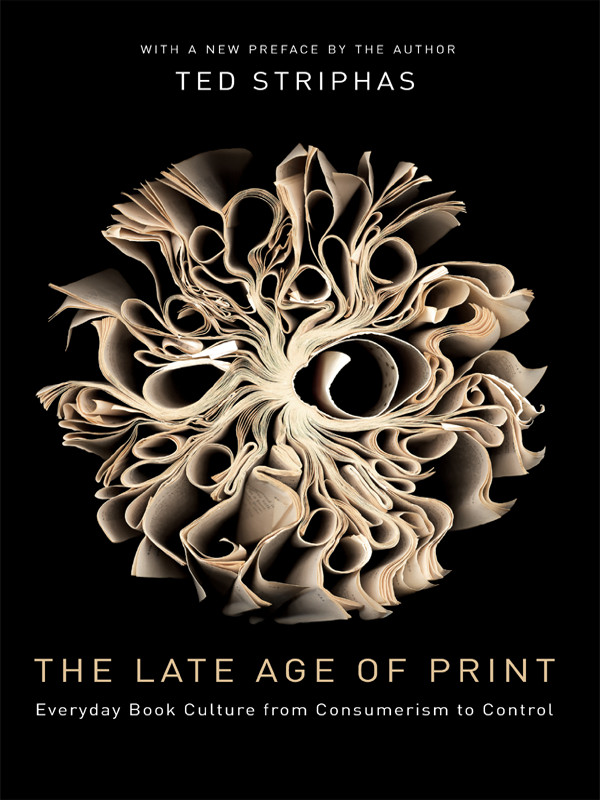Stefan Sonvilla-Weiss (ed.): Mashup Cultures (2010)
Filed under book | Tags: · creative commons, crowdsourcing, e-learning, fair use, filesharing, folksonomy, free culture, mashup, network, remix, swarm intelligence, web 2.0

This volume brings together cutting-edge thinkers and scholars together with young researchers and students, proposing a colourful spectrum of media-theoretical, -practical and -educational approaches to current creative practices and techniques of production and consumption on and off the web. Along with the exploration of some of the emerging social media concepts, the book unveils some of the key drivers leading to participatory engagement of the User.
Mashup Cultures presents a broader view of the effects and consequences of current remix practices and the recombination of existing digital cultural content. The complexity of this book, which appears on the occasion of the fifth anniversary of the international MA study program ePedagogy Design – Visual Knowledge Building, also by necessity seeks to familiarize the reader with a profound glossary and vocabulary of Web 2.0 cultural techniques.
With contributions by Axel Bruns, Brenda Castro, Doris Gassert, David Gauntlett, Mizuko Ito, Henry Jenkins, Owen Kelly, Noora Sopula & Joni Leimu, Torsten Meyer, Eduardo Navas, Christina Schwalbe, Stefan Sonvilla-Weiss, Wey-Han Tan and Tere Vadén & Juha Varto.
Publisher Springer, 2010
ISBN 370910095X, 9783709100950
Length 256 pages
review (Mike Mosher, Leonardo Reviews)
Comment (0)Ted Striphas: The Late Age of Print: Everyday Book Culture from Consumerism to Control (2009)
Filed under book | Tags: · book, electronic literature, filesharing, literature, publishing

“Ted Striphas argues that, although the production and propagation of books have undoubtedly have entered a new phase, printed works are still very much a part of our everyday lives. With examples from trade journals, news media, films, advertisements, and a host of other commercial and scholarly materials, Striphas tells a story of modern publishing that proves, even in a rapidly digitizing world, books are anything but dead.
From the rise of retail superstores to Oprah’s phenomenal reach, Striphas tracks the methods through which the book industry has adapted (or has failed to adapt) to rapid changes in twentieth-century print culture. Barnes & Noble, Borders, and Amazon.com have established new routes of traffic in and around books, and pop sensations like Harry Potter and the Oprah Book Club have inspired the kind of brand loyalty that could only make advertisers swoon. At the same time, advances in digital technology have presented the book industry with extraordinary threats and unique opportunities.
Striphas’s provocative analysis offers a counternarrative to those who either triumphantly declare the end of printed books or deeply mourn their passing. He isolates the invisible processes through which books have come to mediate our social interactions and influence our habits of consumption, integrating themselves into our routines and intellects like never before.”
Publisher Columbia University Press, 2009
Creative Commons Attribution-Noncommercial-Share Alike 3.0 License
ISBN 0231148143, 9780231148146
242 pages
Interview with author: Henry Jenkins (2012, Part 2).
Reviews: Steven Poole (The Guardian, 2009), Vicky Gilpin (Southwest Journal of Cultures, 2009), Casey Brienza (Publishing Research Quarterly, 2009), Sarah Lowengard (Technology and Culture, 2010), Jeffrey St. John (Quarterly Journal of Speech, 2010), David Haeselin (Electronic Book Review, 2010), Laura J. Miller (Journal of Consumer Culture, 2010), Sean Johnson Andrews (Reviews in Cultural Theory, 2011).
Book website
Wikipedia
Publisher
WorldCat
PDF (11 MB, updated on 2020-5-19)
EPUB (18 MB, added on 2020-5-19)
AltArt Foundation: Bare Share. Culture of File Sharing in Romania (2007)
Filed under catalogue | Tags: · filesharing, network culture, p2p, romania, software

“The exhibition contained the works of largely anonymous artists and some of the best known – active in the digital space. The territory researched is the DC++-based neighborhood networks – providers of an endemic culture where the act of sharing is the prototypical contract of participating in this culture. Sharing while not expecting immediate gratification make neighborhood networks complex gift economies – where the community becomes an entity, the real gifting partner – playing the role of the donor and recipient in the same time.
This ideology of exchange – regardless of legal issues or moral concerns – builds a subculture of consumption that is maintained through giving. Gifting becomes a tool for the collapse of the permission-culture-based capitalist market hegemony while it is serving as an alternative consumption activity at the electronic frontier.”
Curators: Istvan Szakáts, Stefan Tiron
Project by AltArt Foundation
PDF (updated on 2023-9-27)
Comment (0)
